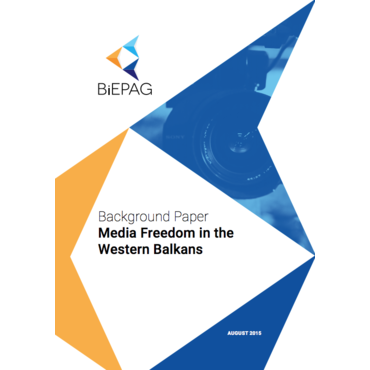
Recent assessments of the situation concerning media freedom in the Balkans have been sobering. The region is brewing with incidents of media freedom violations, which bring under attack not just the basic right to freedom of expression, but also the state of democracy in the region. In addition, some of the same problems that existed a decade or so ago are still haunting the Balkans: political pressure, illegal state subsidies – often in the form of state advertising, reinforced by the economic crisis – professional weakness, and a lack of security for journalists. Although the legal frameworks are essentially in place throughout the region and have mostly been brought up to date with the assistance of international organisations, political elites in the Balkan countries are effectively resisting the implementation of adopted strategies and laws guaranteeing media freedom. Dunja Mijatović, OSCE Representative on Freedom of the Media, declared recently that the state of media freedom in the Balkans today is worse than after the 1990s wars. Her assessment is in line with the findings of this year’s Reporters without Borders World Press Freedom Index and the Freedom House Freedom Press Report, both of which highlight a sweeping deterioration of global press and a massive decrease of media freedom in the Balkan countries. Johannes Hahn, the Commissioner for the European Neighborhood and Enlargement Negotiations, recently claimed that he needed proof—in the case of Serbia—in order to react to alleged media freedom violations. The aim of this analysis is to identify regional patterns and mechanisms of government control and pressure, as well as to offer potential benchmarks on how to effectively assess media freedom in EU accession countries.
